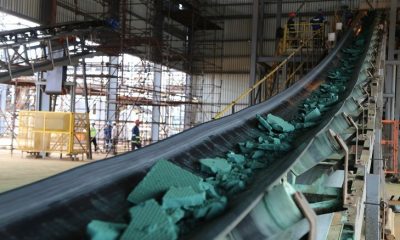breaking news
DRC: Glencore has been forced to cancel a « fictional » defense debt from KCC

[FLASH-BACK] – Glencore was forced by Gécamines to cancel a « fictional debt » defense of Kamoto Copper Company (KCC). Thus, the cancellation of 1.4 billion US dollars will not have been at all a gift to the Congolese government. It intervened following the signing of the transactional agreement on June 12, 2018. The latter put an end to the dispute between the two partners, namely: Gécamines (owner of 25% of the shares) and Katanga Mining, a subsidiary of Glencore in the DRC (owner of the 75% stake) in this joint venture.
The fact that Glencore’s CEO, Ivan Glasenberg, equates the cancellation of this « fictitious » debt with a « gift » to the Congolese state obscures a page of history and discredits the national executive. the DRC. Voices rise to denounce a real position of defense of this manager vis-à-vis its partners in the General Assembly.
If not, analyze some, he should show evidence that this money would have been used for the corruption of the Congolese authorities. At this sulphurous statement, Glencore, for its part, said that its activities were strictly above all advice and that it had taken measures to strengthen its corporate governance.
« The company claims that the cancellation of the debt by Katanga Mining was not a bribe. It was a debt reduction; no individual took advantage of it, it was transparent. And in all transparency, it has been approved by our listeners, « said a spokesman for Glencore.
Back to the origin of the cancellation
In fact, the over-indebtedness and the non-reconstitution of the capital of the joint venture were the two reasons for a deaf dialogue that had taken place between the two partners. This led Gecamines to solicit from the Commercial Court of Kolwezi, dated April 20, 2018, the dissolution of KCC.
Katanga Mining, a subsidiary of Glencore in the DRC, was criticized by Gécamines for having, through a series of intragroup financial and commercial agreements, implemented a policy that resulted in the cash and wealth being extracted for its sole profit. from KCC. And this, for more than ten years.
#RDC Le patron de Glencore, Ivan Glasenberg, considère l’annulation de la DETTE de 1,4 milliard USD de #KCC comme un CADEAU au gouvernement congolais. @Gecamines, détentrice de 25% de parts dans #KCC, est appelée à RETABLIR LA VÉRITÉ. https://t.co/mw3eE3gNUo
— Eric Tshikuma (@erictshikuma) May 15, 2019
« Based solely on the last four fiscal years, the financial debt has increased from USD 3,233,736,880 to USD 4,572,497,908 and the commercial debt from USD 1,967,255,847 to USD 4,473,525,056. At the end of 2017, the company was indebted to the Glencore Group for 9 billion USD, all bearing annual interest rates of up to 14%, far from the conditions that the parent company borrows, and then lend to the joint venture. It is thus several hundreds of millions of dollars of interest which are each year due by KCC to the group of majority shareholders « , revealed the Gécamines in an official update.
READ (ALSO): Did Glencore really roll Gécamines?
Despite being surprised to see its minority partner launch legal proceedings unilaterally, the Glencore subsidiary considered this negative equity situation as an accounting problem that resulted from KCC’s historical losses following the rehabilitation of the old infrastructure that it had inherited. at the time of the acquisition of the Kolwezi mining complex.
« KCC and its shareholders in Katanga have made numerous attempts to engage in constructive negotiations with Gécamines to remedy this situation and will continue to attempt to engage in these negotiations. KCC and its shareholders in Katanga Mining will take all necessary measures to remedy this situation and ensure the consolidation and continuation of its operations, « said KCC in an official statement.
RE (READ OUT): settled KCC litigation, Gécamines and Katanga mining sign an agreement!
The adjournment of the 8 May 2018 hearing at the Kolwezi Commercial Court paved the way for an amicable settlement process that will end one month later, on June 12, 2018, with the signing of ‘an agreement at the end of which, Glencore has agreed the cancellation of its debt that Gécamines considered « fictitious ».
As a reminder, Gécamines is engaged in a process of legal and economic rebalancing of its partnerships with mining investors. Objective: to allow its Jointe Ventures to produce wealth not only for itself, but also for the state.
Eric TSHIKUMA
Africa
DRC : Tenders for tailings storage works at MMG Kinsevere
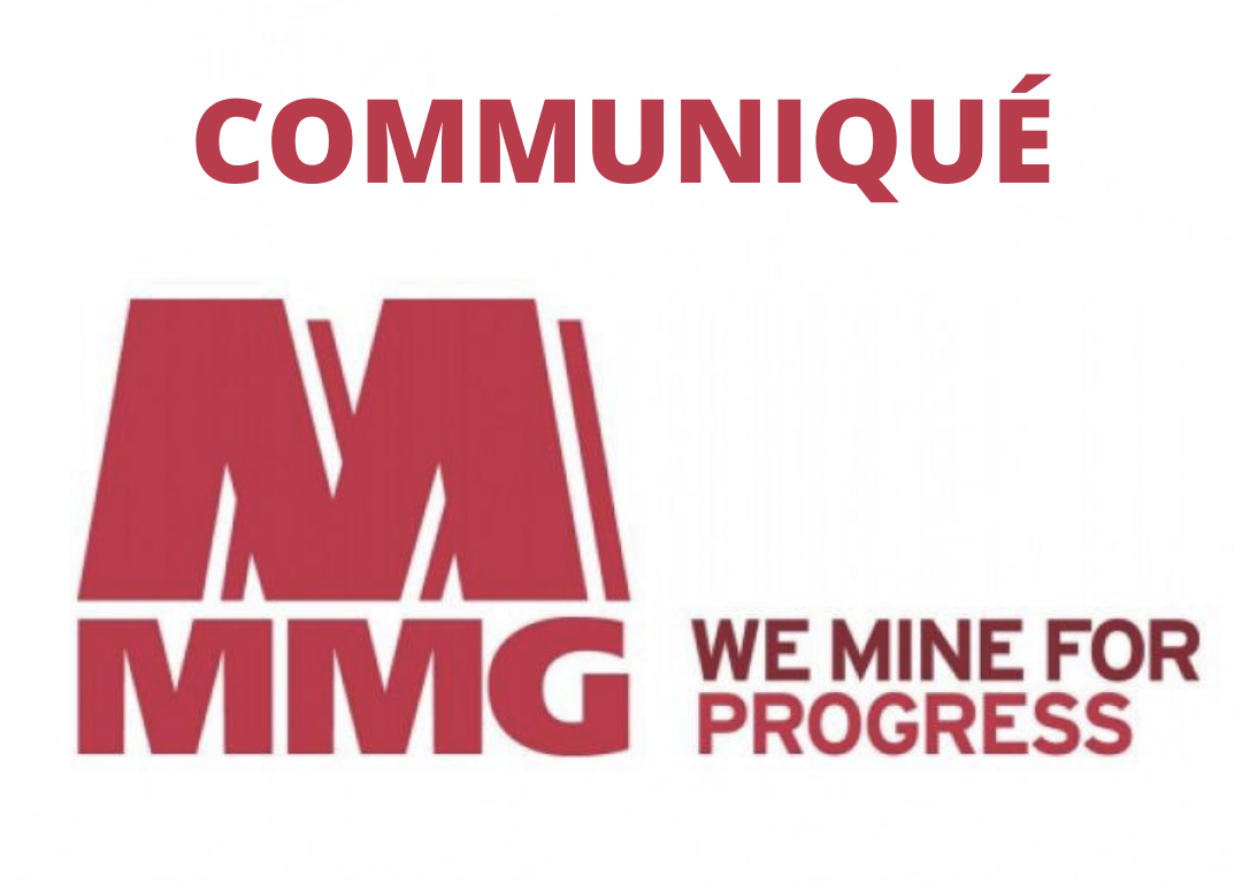
PUBLIC NOTICE – MMG Kinsevere SARL hereby announces to the public within the Democratic Republic of Congo that the following tenders are currently being prepared and finalised for future works to be undertaken at the Kinsevere Mine site.
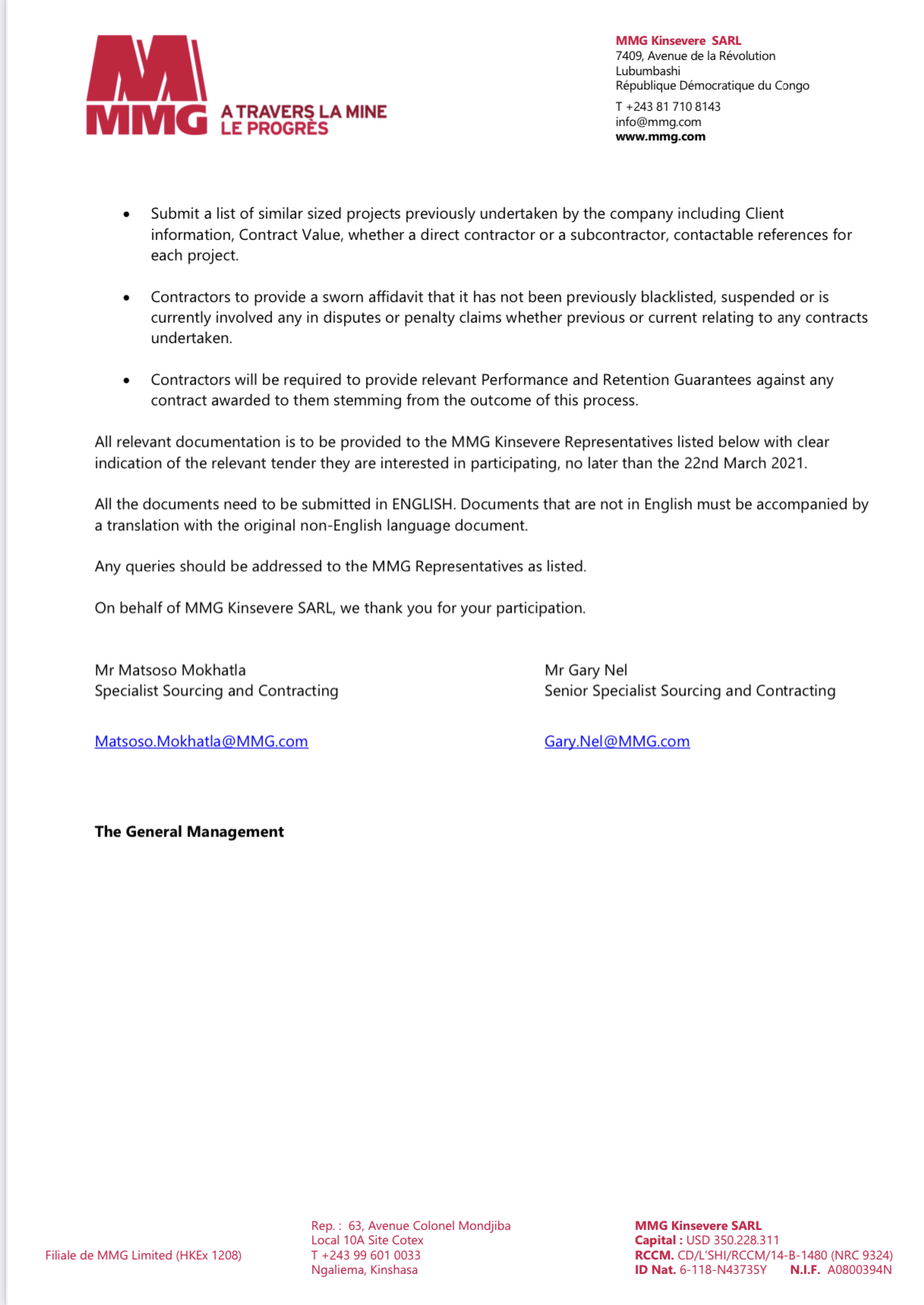
Africa
DRC: Launch of Tender for Laboratory Services At MMG Kinsevere

MMG Kinsevere SARL hereby announces to the public the launch of the tender for Laboratory Services for Mining and exploration.
All intertested and qualifying entities need to submit their respective company files as per the below list of requirements detailing their expression of interest for the above tender by no later than 10 March 2021.

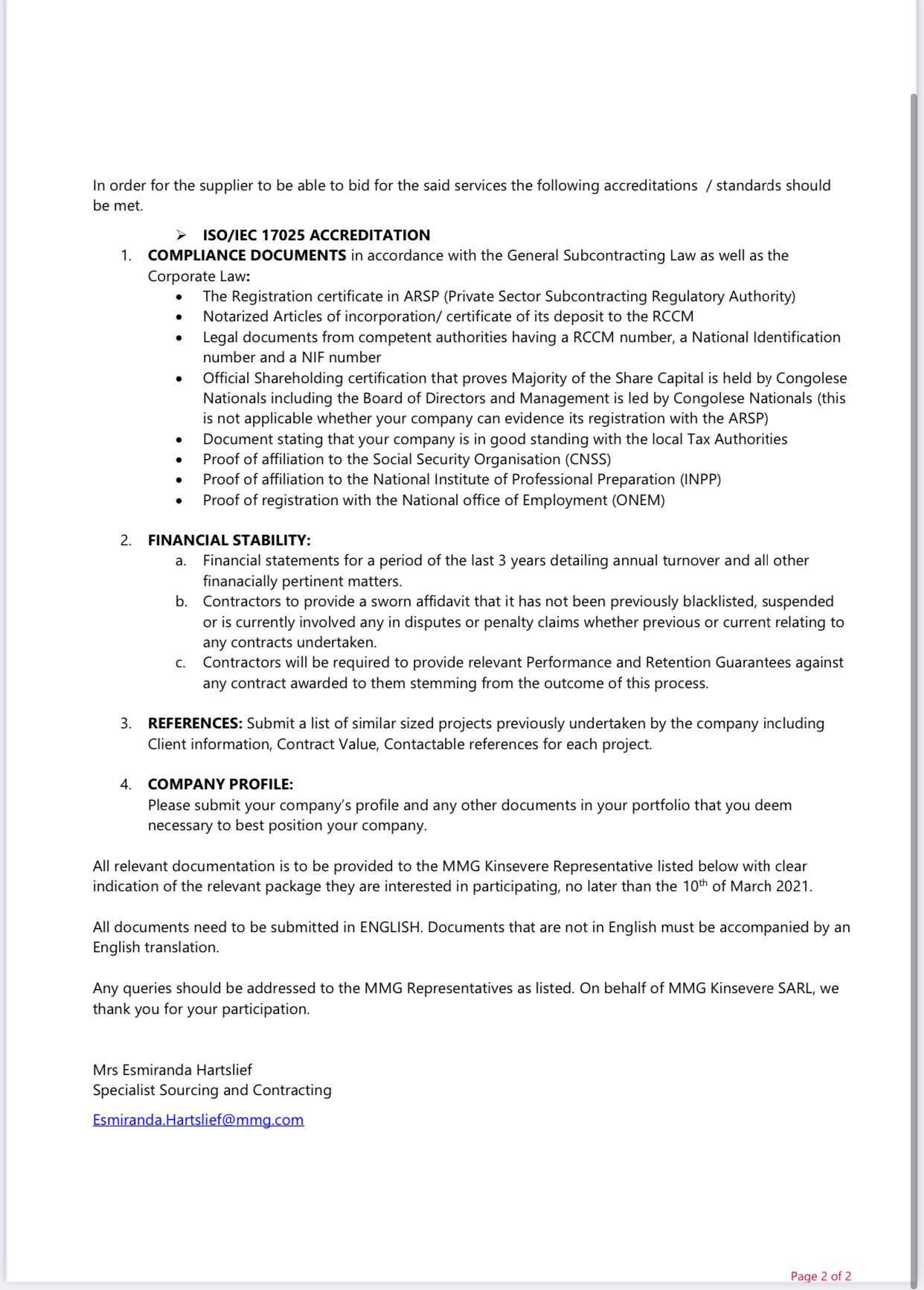
breaking news
DRC: Launch of tender for exploration drilling at MMG Kinsevere
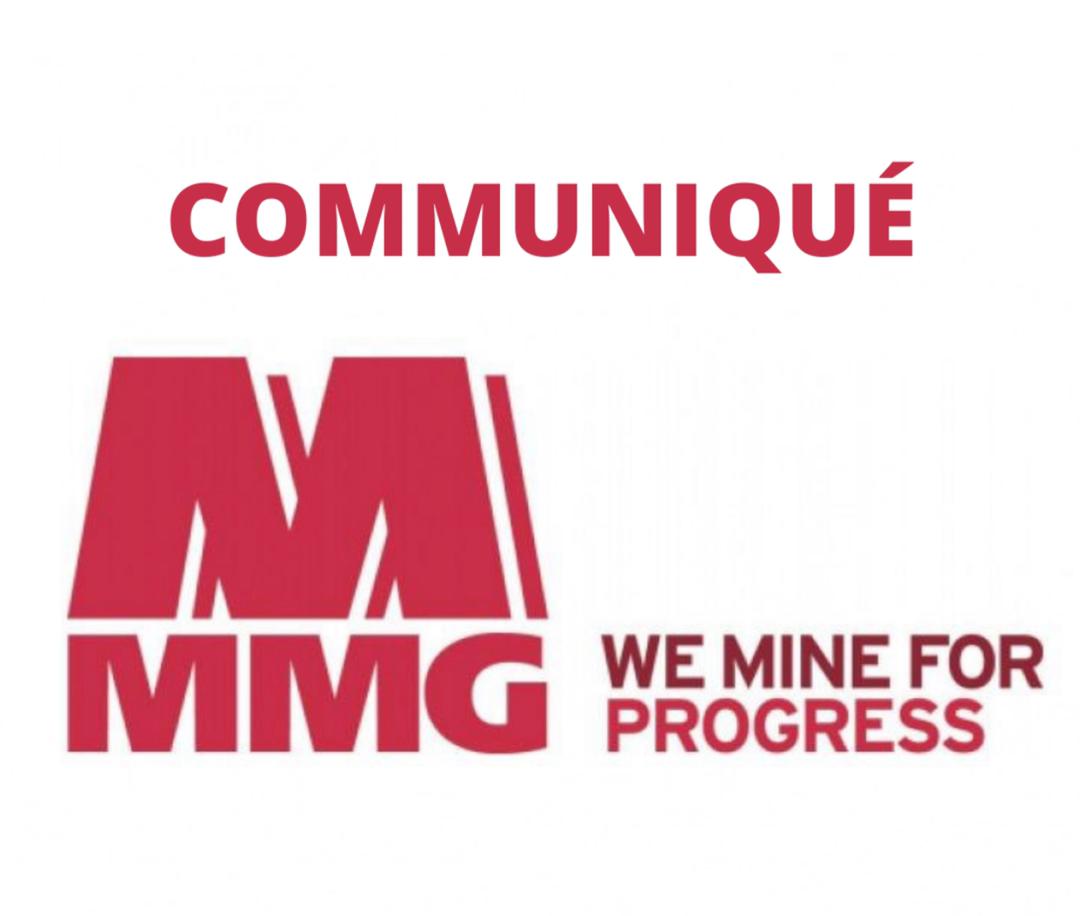
PUBLIC NOTICE – MMG Kinsevere SARL hereby announces to the public within the Democratic Republic of Congo the launch of the of tender for Exploration Drilling
All interested and qualifying entities need to submit their respective company files as per the below list of requirements detailing their expression of interest for the above tender by no later than 03rd of March 2021.



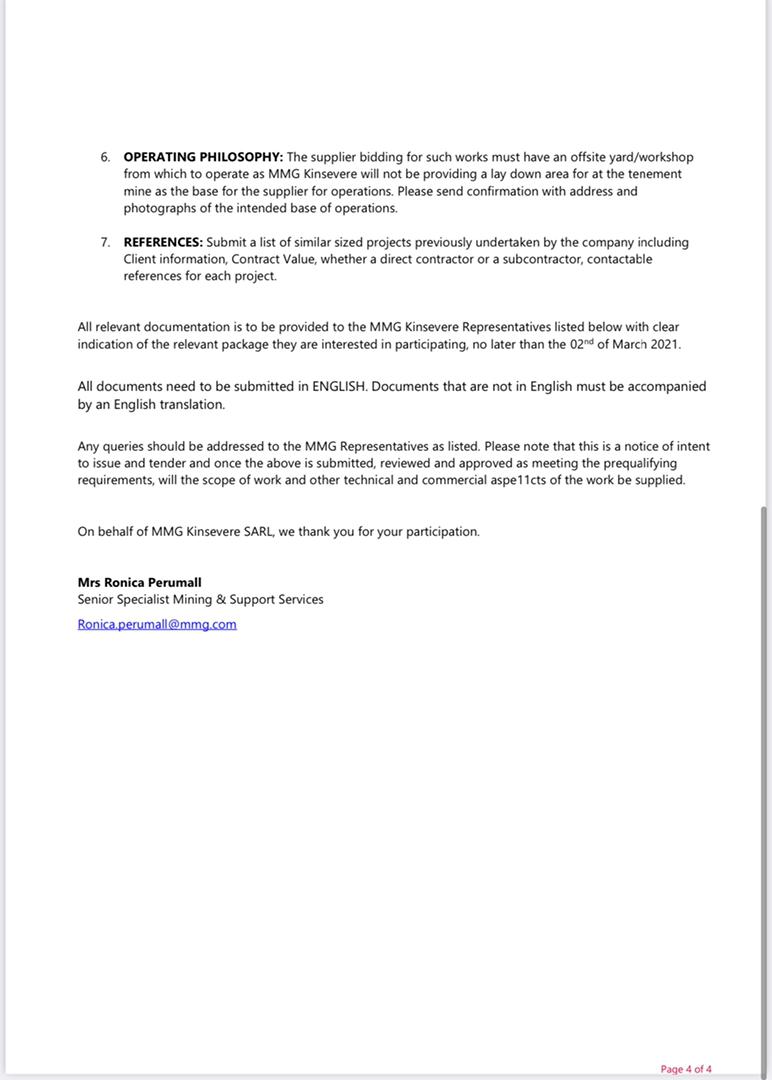
-

 breaking news5 ans ago
breaking news5 ans agoDRC: dam Zongo II, a project poorly evaluated technically and financially (study)
-

 breaking news5 ans ago
breaking news5 ans agoDRC: International Banker Awards SOFIBANQUE Two 2019 Best Bank Awards
-

 breaking news5 ans ago
breaking news5 ans agoDRC: Government incorporates IDEF into the cost of airfare
-

 Banks5 ans ago
Banks5 ans agoDRC: Equity Bank strengthens its partnership with VISA inc.
-

 breaking news5 ans ago
breaking news5 ans agoDRC: Dandy Matata calls for a state of emergency in the education sector
-

 breaking news5 ans ago
breaking news5 ans agoDRC: DIVO launches renovations to the Tata Raphael stadium
-

 breaking news5 ans ago
breaking news5 ans agoDRC: ACERD expects renewable energy investment opportunities
-
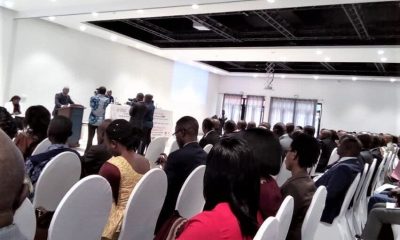
 breaking news5 ans ago
breaking news5 ans agoDRC: Kangudia launches Fiscal Year 2020 Budget Orientation Seminar








